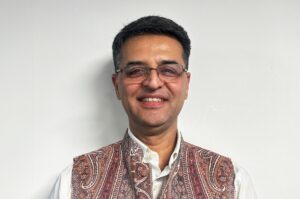
Not too long ago, education was considered to be a preparation for a lifelong career but today it must equip the young with the knowledge to also deal with a climate-changed world, be conversant with new technologies and be ahead of the learning curve as informed, socially responsible global citizens. As 2024 comes to an end, Mr. Dominic Tomalin, Founding Headmaster, Shrewsbury International School, India holds forth on the key trends he observed this year in global learning models.
Emphasis on ‘whole-person’ education
Even before the pandemic revealed the inadequacies of the chalk-and-talk model, leading international institutions were focusing on immersive, learner-centred education focused on the intellectual, spiritual and ethical growth of students. This year as well, modern pedagogies emphasised the importance of active, lifelong learning rather than just academic milestones. In the coming year too, there will be an even sharper focus on cultivating a value-based education model that prepares students for not just professional success but also personal fulfillment by nurturing their emotional intelligence.
Technology in a seminal role
The pandemic underscored the importance of remote learning. Today, apart from hybrid learning modules that are making education more accessible and democratised, we are also witnessing an increasing reliance on technologies like Virtual Reality (VR) and Augmented Reality (AR) in learning environments. Simulation technologies are being increasingly used to give students an immersive experience of their syllabi. Technology is also changing the way students process and imbibe knowledge. EdTech innovations, gamification, interactive and experiential learning are decisively replacing rote learning in Indian classrooms. Technological tools are also helping educators to tailor syllabi and personalise modules with ease to cater to the needs of different students.
Soft skills and micro-credentials
The global job market today is marked with massive technological shifts and demands diverse, updated skills including in areas like data analysis, cyber security, coding and user experience (UX) design among others. Education institutions are hence increasingly paying attention to micro-credentials and short courses to prepare students for future forward careers. Skill development in this context however also encompasses soft skills such as effective communication, time management, the ability to collaborate, creativity, problem-solving, leadership, adaptability in diverse milieus and empathy.
Inclusivity and collaboration
Global education is marked by inclusivity, respect for diversity, different ethnicities and varied belief systems. Progressive global education encourages multilingualism, exposure to different milieus and cross-cultural exchange and this trend will grow stronger in the time to come. To offer a global perspective to students, schools will continue to offer them access to collaborative knowledge networks and world-class resources. Modern educators will partner with schools around the world to mentor enlightened global citizens who will be independent thinkers but will also know the value of harmonious interdependence.
Climate focused education
As mentioned in the beginning, students are now facing the seminal issue of climate change and so Education for Sustainable Development (ESD) is becoming integral to global curricula. It is essential for students to explore their relationship with their environment and formulate ways in which they can make it cleaner, greener and healthier. Across the world, young climate champions are redefining the discourse around global warming and the triple planetary crisis of pollution, biodiversity loss and climate change. In time, many more schools in India will impart values and skills that will enable students to live in harmony with the earth and create solutions that are beneficial for the planet as well as economic and social equity.
By Dominic Tomalin, Founding Headmaster, Shrewsbury International School, India



